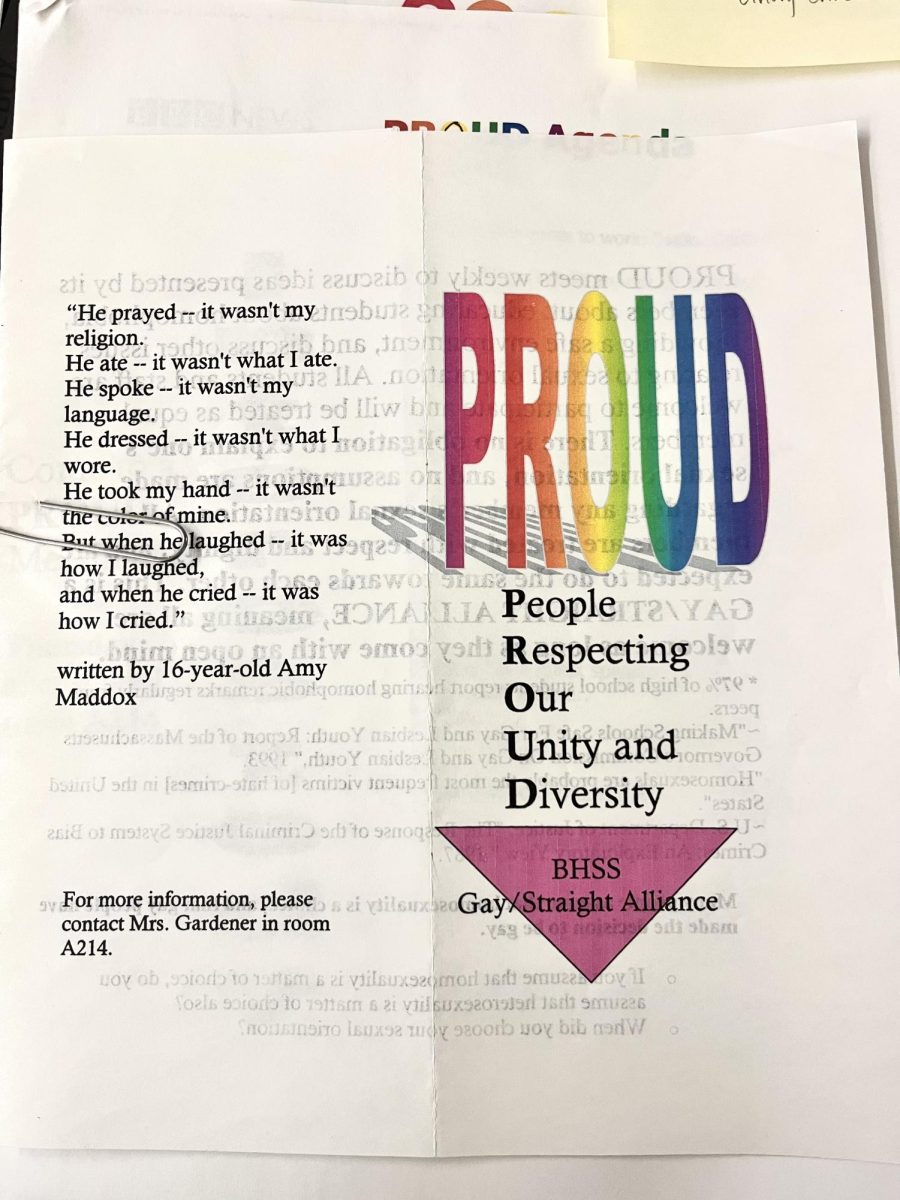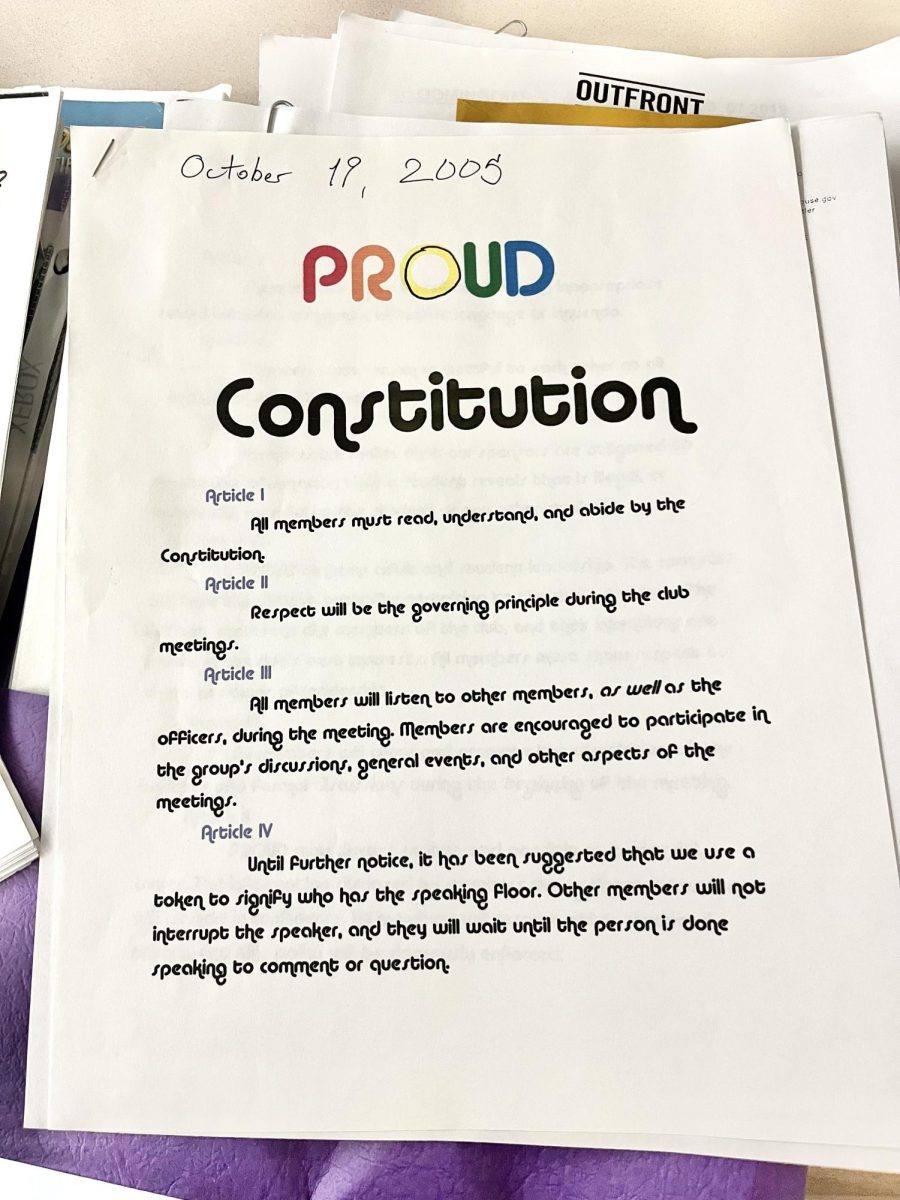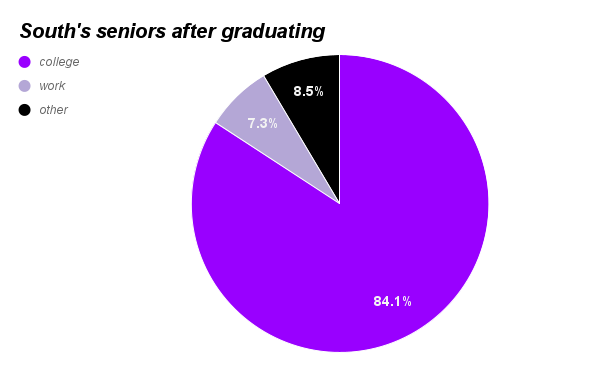*All articles were provided by Crystal Shield from the PROUD archives*
PROUD (People Respecting Our Unity and Diversity) is one of the oldest Gay Straight Alliance (GSA) clubs in Indiana, which is a student-run organization that invites LGBTQ+ folk and straight allies to create a safe space and advocate for social justice.
Alumnus Phoebe Hanshew founded PROUD in the mid-’90s as a sophomore and participated in the Indiana Youth Group (IYG), an Indianapolis-based LGBTQ+ support network. The first sponsor was English teacher Debbie Horning, who asked English teacher Carla Gardner to continue the club’s sponsorship.
Gardner was initially hesitant to sponsor PROUD due to previous resistance from principals and the school. “When we had put up announcements on the bulletin board about the possibility of people joining this club,” Gardner said, “the janitors had ripped them down.” In response, Gardner recommended that two teachers, who already had support from faculty and students, sponsor the club and keep protests to a minimum.
Gardner’s partner-in-crime would be Jim Flannery, a retired lawyer and adored teacher. After Flannery moved to Michigan, Gardner teamed up with her hallway neighbor, John Jefferies. The two continued as co-sponsors until Gardner’s retirement in 2013.
Despite faculty support, PROUD faced discrimination through exclusive policies such as requiring parental permission and a list of students who were either allies or openly out. Gardner and Flannery complied to get the club started, but pushed back soon afterward.
“If you make every after-school club do it, OK, then we will conform,” Gardner said, “but until every club has to do it, no–we’re not gonna do that.”
Other GSA clubs weren’t as fortunate. Gardner noted that in Bedford, one high school chose to stop all after-school clubs rather than allowing a GSA. Some students deliberately moved to Bloomington to attend South or North, where there were GSA clubs.
Gardner emphasized that sponsors were mentors, not micromanagers, creating space while allowing students to lead, even if that also meant accompanying students to administrators to discuss concerns.
“That’s the way Phoebe had wanted it, and that’s the way we wanted it,” said Gardner.
Gardner applied these principles to managing activities. “We told the kids we can’t advise you,” Gardner noted, “but we can bring in speakers who can talk about [gender identity] with you or find a place you can go to hear more about this.” Speakers included Doug Bauder, IU’s first LGBTQ+ Center coordinator, and IYG gender studies experts.
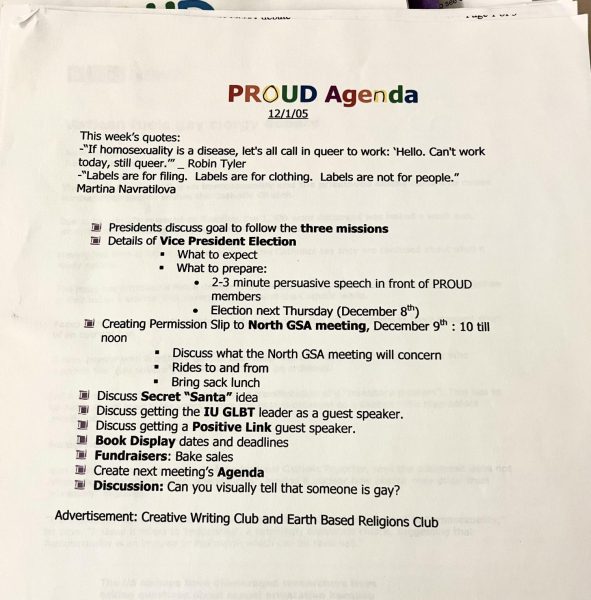
Nonetheless, Gardner noted that most club events were “simply friendly…[and] most importantly, [a place] to know that no one at the meeting would insult or harass you just for being yourself.”
PROUD also participated in many fundraisers, from collecting pennies for UNICEF to dances. “We just participated in everything. If there would need to be a poster for Homecoming, we made a poster and if they got ripped down, we made them again and put them right back up, and we just kept doing that,” said Gardner.
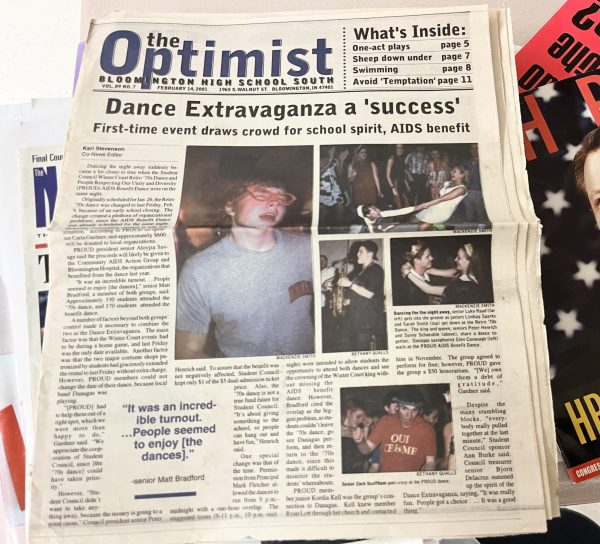
One important event PROUD celebrates is the Day of Silence, a national day to raise awareness about the effects of discrimination and violence towards LGBTQ+ students and allies. Using silence during school to participate, students wrote blue cards to explain their silence with a caveat of doing school work that necessitated speech like presentations. Nonetheless, Gardner added that “there are many ways to support [Day of Silence] without making schooling impossible.”
This year’s Day of Silence took place on April 4th.
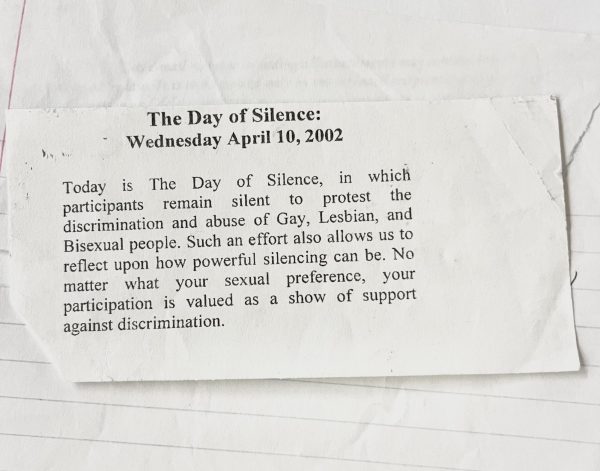
In 2024, the event’s name was changed to Day of (NO) Silence to emphasize LGBTQ+ voices and resistance.
Despite its past success, Day of Silence was not publicized this year due to posters being torn down and resistance to the club. PROUD’s president Lilith Roberts said, “I can only imagine that it’ll get worse in this political climate,” and was the reason why she “felt so hesitant to be more ‘in your face’ with something like Day of Silence, because we don’t know how far this will go.”
Still current sponsor Crystal Shield remains optimistic. “We’re not going anywhere…we’re just going to tough it out and just be there for each other when people are ready to come, you know, we’re here.”
Gardner reflected on the AIDS stigma in the early and mid-’90s, when even those like Ryan White who contracted the disease from a blood transfusion were “treated as…the scourge of the Earth.” This hate made Gardner fearful for her gay daughter, but seeing her stand up for herself gave Gardner strength. “She gave me courage to be less afraid for her and for my students.”
Shield noted that once she took over in 2018, PROUD was already established but dwindled over the years, especially around COVID. “But we do always have kids that want to come and socialize and just be there for each other,” said Shield.
Roberts echoed these sentiments, being “not as worried about [recruiting as much] as making sure that the people who need the space, have the space.” Sophomore Jiping Liu appreciates having “a community of people to share knowledge or share about themselves.”
Having grown up in a small rural town in the ‘90s, Shield said a club like PROUD would be unheard of. “I have personal experience in my own family with a loved one being transgender, and back in the 1990s, again, that was just not talked about,” Shield noted, “so I’m very proud to be a part of PROUD because it makes me think of my family member that they would have had a safe place to go back then.”
“We’re here, we’re for everyone,” Shield added, “you don’t have to be a part of the community. You could be a straight ally, and you know, just support humans. That’s what it’s about.”
